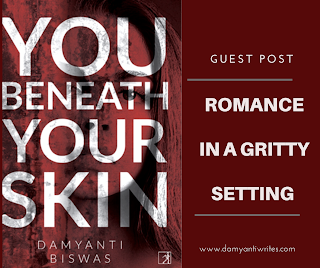 I’m
delighted today to welcome author C. Lee McKenzie to my site to talk about her
latest release, NOT GUILTY, as part of her MC Book Tour Blog
adventure.
I’m
delighted today to welcome author C. Lee McKenzie to my site to talk about her
latest release, NOT GUILTY, as part of her MC Book Tour Blog
adventure.
After you
find out more about this tantalizing new story, be sure to enter Lee’s giveaway
featured below.
* Not
Guilty
* by C. Lee McKenzie
* Publication Date: October 25, 2019
* Genre: Young Adult
* by C. Lee McKenzie
* Publication Date: October 25, 2019
* Genre: Young Adult
A blood-smeared knife. One young man’s word against
another. A lifetime dream crushed.
The evidence points to Devon Carlyle. He was there
when it happened. Everyone knows he had it in for Renzo Costa. And Costa says
Devon was the one. In the judge’s rap of a gavel, Devon’s found guilty of
assault. The star of the Oceanside High’s basketball team loses his shot at the
one thing he’s worked so hard for—the championship game where college scouts
could see how good he is.
Now he makes his great shots in Juvenile Hall with
kids far different from those that have always been in his life.
Angry? Hell, yes.
He’s bent on finding who did the crime. He’s bent
on making them pay because he’s Not Guilty.
But can he prove it?
For those
who aren’t familiar with the author, here’s a bit of background on her.
 C. Lee
McKenzie has a background in Linguistics and Inter-Cultural
Communication, but these days her greatest passion is writing for young
readers. She has published five young adult novels: Sliding on the
Edge, The Princess of Las Pulgas, Double Negative, and Sudden Secrets. Not
Guilty is her most recent one.
C. Lee
McKenzie has a background in Linguistics and Inter-Cultural
Communication, but these days her greatest passion is writing for young
readers. She has published five young adult novels: Sliding on the
Edge, The Princess of Las Pulgas, Double Negative, and Sudden Secrets. Not
Guilty is her most recent one.
Sometimes she likes to jump into the world of the
fantastic and when she does, she writes for the middle-grade reader. Some
Very Messy Medieval Magick is the third book in the time-travel
adventures of Pete and Weasel, with Alligators Overhead and The
Great Time Lock Disaster being the first two. Sign
of the Green Dragon, a stand-alone, takes the reader into ancient
Chinese dragon myths and a quest for treasure.
When she’s not writing she’s hiking or traveling or
practicing yoga or asking a lot of questions about things she still doesn’t
understand.
For more
information on Lee and her writing, connect with her on Facebook, Twitter, Instagram and
at her Website.
The author’s other young adult books include: Sliding on the Edge, Princess of Las Pulgas, Double Negative, Sudden Secrets
With
Halloween celebrated this week, Lee’s giving away five digital copies of NOT
GUILTY and a $10 Amazon Gift Certificate. This tour-wide giveaway will
end at midnight on Tuesday, Nov. 5th.
To enter
the giveaway, just click on the Rafflecopter widget below and follow the
instructions. The widget may take a few seconds to load so please be patient.
If the widget doesn’t show up, just click HERE and
you’ll be directed to the widget.
Thanks
for stopping by today during Lee’s visit. Do you enjoy stories where the
underdog becomes the champion? Don’t forget to enter the giveaway.
***
My review:
This book is a powerful and emotional read - one of my favourite YA reads ever.
Devon is a 17-year-old basketball star who has everything going his way ... until he's accused of stabbing a man on a stretch of beach near his home.
Watching Devon go through so many challenges makes for a stressful and emotional ride that had me both in tears and cheering more than once.
Honest, gritty, realistic, and incredibly heartfelt.
These characters and this story will stay with you long after you've finished the final page.
Devon is a 17-year-old basketball star who has everything going his way ... until he's accused of stabbing a man on a stretch of beach near his home.
Watching Devon go through so many challenges makes for a stressful and emotional ride that had me both in tears and cheering more than once.
Honest, gritty, realistic, and incredibly heartfelt.
These characters and this story will stay with you long after you've finished the final page.
A fabulous read!!
NOT GUILTY is out and about and it is so good. It's easily one of the most powerful and emotional YA books I've ever read. It pulled me in from the beginning, dug in its claws, and didn't let go until the last words. Do yourself a favour and pick up your copy!









